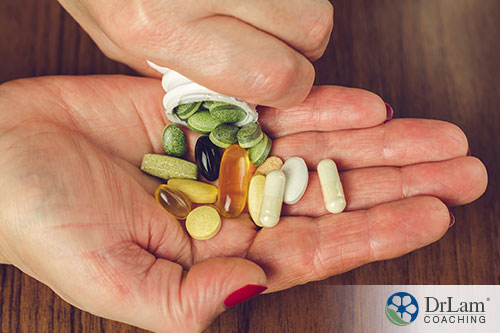 Vitamin D deficiencies are becoming more common. This is an issue, because such deficiencies can cause problems, most of them related to the health and strength of your bones. But, correcting your levels with a high-dose vitamin D supplement isn’t the answer. In fact, this may just worsen the original problem. This doesn’t mean you should ignore the issue. However, there are more effective changes that you can make to boost your vitamin D levels over the long-term.
Vitamin D deficiencies are becoming more common. This is an issue, because such deficiencies can cause problems, most of them related to the health and strength of your bones. But, correcting your levels with a high-dose vitamin D supplement isn’t the answer. In fact, this may just worsen the original problem. This doesn’t mean you should ignore the issue. However, there are more effective changes that you can make to boost your vitamin D levels over the long-term.
Vitamin D is created by your body. It’s formed mostly in the skin and is used in every cell. This vitamin is found in certain foods, but its best source is sunlight. Unfortunately, it can be difficult to get your recommended daily dose of vitamin D. How much you need is different depending on your age and life circumstances, but ranges between 400 and 800 IU. Because of the difficulty with this, and the dangers of getting vitamin D from the sun, people have started taking high-dose vitamin D supplements.
Vitamin D’s primary duty is to help the body absorb calcium. So, if you aren’t getting enough of this vitamin, you may find that your bones become soft and brittle. This can result in rickets in children and osteomalacia in adults. But this isn’t all that vitamin D does. Your muscles need it to move and it helps your nerves to carry messages between the brain and the rest of your body. It also helps your immune system to fight off viruses and bacteria and protects you from osteoporosis as you age. Vitamin D can also help to regulate insulin levels and help you manage your diabetes. It supports lung function and boosts cardiovascular health. And it influences certain genes that are involved in cancer development.
All of these benefits prove the importance of vitamin D for your health. And they’re also why the effects can be so devastating when you don’t get enough of this essential vitamin.
Vitamin D deficiency is the most common nutrient deficiency, and there are reasons for this. The first is the concern about skin cancer. People have been told for years to stay out of the sun, to wear sunscreen, and to cover up at all times. Unfortunately, this prevents the skin from enjoying the sun exposure that it needs to make vitamin D. The typical modern lifestyle is another reason for the increase in this deficiency. People spend more time than ever inside, on their computers or phones, and less time outside. This again deprives them of the sunlight they need.
Some of the most common signs of vitamin D deficiency are:
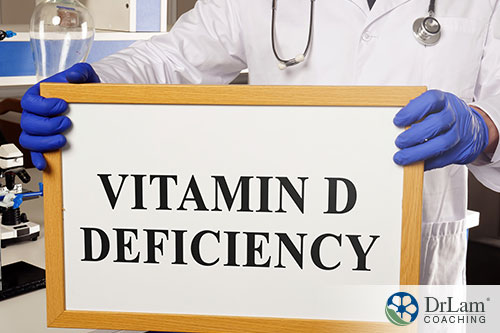
If you have any of these symptoms on a regular basis, it’s worth talking to your medical professional and getting your vitamin D levels tested. However, that doesn’t mean that you should start taking high-dose vitamin D supplements, because this might just cause more problems.
A special study recently tried to determine if high-dose vitamin D improved bone mineral density. Over 300 healthy adults, aged 55 to 70, were randomized to receive 400, 4000, or 10,000 IU of oral vitamin D. The participants took these supplements every day for 3 years.
Surprisingly, the higher doses were associated with greater bone mineral loss than the lower dose. This bone loss was found in the radius, one of the two major bones in the arm. The 10,000 IU dose was also associated with slight losses in bone density in the tibia, the large bone in the lower leg. Bone strength didn’t differ between the three groups.
However, there were more unexpected results from this study on high-dose vitamin D. Participants who received the higher doses were at greater risk for hypercalcemia. This is a condition in which calcium levels in the blood are too high. People with this condition are at risk of kidney stones, weaker bones, and impaired heart and brain functions. People taking the higher dose were also at risk of hypercalciuria or excess calcium in the urine.
What this suggests is that high-dose vitamin D doesn’t always have the health benefits that you might expect. In fact, it may cause additional and very serious health problems. More research is needed to confirm this connection, but until then it’s probably safer to get your vitamin D from more natural sources.
If you’re deficient in vitamin D, there are several things you can do to increase your intake. Certain foods contain this nutrient and increasing your intake of them can be helpful. Foods high in vitamin D include:
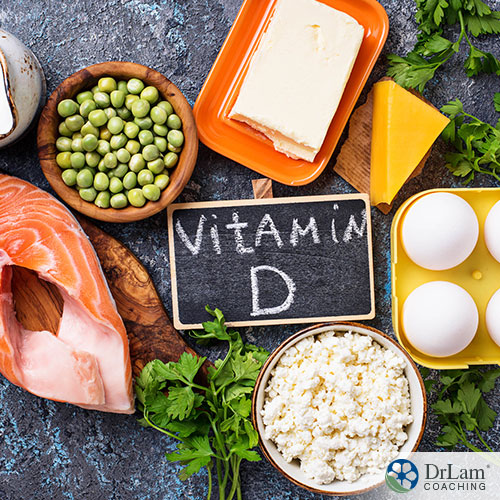
It can be difficult to get all the vitamin D you need from these sources. This is why many people have instead turned to high-dose vitamin D supplements. But, the most effective vitamin D source is the sun. And if you’re careful, you can get the vitamin D you need from the sun without worrying about negative effects. Here are some tips on getting the most from your sun exposure:
The amount of time you need to spend in the sun varies depending on your skin color and your location. Unfortunately, there is no exact number for this. Try spending a short amount of time in the sun every day. If you start to turn red, then you’ve been outside for too long. Making this small change to your daily routine can be very beneficial if you’re healthy. And if you have adrenal fatigue it may be even more helpful.
Life can be stressful. Considering environmental toxins, work demands, relationship problems, and lifestyle issues, stress can become continual and detrimental. It isn’t supposed to be like this. The body has systems that are designed to help you cope with stress and function at your best during stressful times. The NeuroEndoMetabolic (NEM) Stress Response releases cortisol when you’re stressed so you can fight or flee from the cause. But, few people have to run from predators in the modern world. Instead, you’ll probably find yourself under long-term, chronic stress. And this can be devastating for the NEM Stress Response.
The NEM Stress Response is designed to be active for short periods and then to shut down. So, when you’re under ongoing stress, it's overused and the adrenal glands start to break down. These organs produce cortisol, the 'stress hormone' and when the demand for this hormone is abnormally high over a long period, the adrenal glands can start to malfunction. This can set off a chain reaction through the body that can be damaging. It will affect every circuit and system in your body and any additional stress during this time will just make things worse.
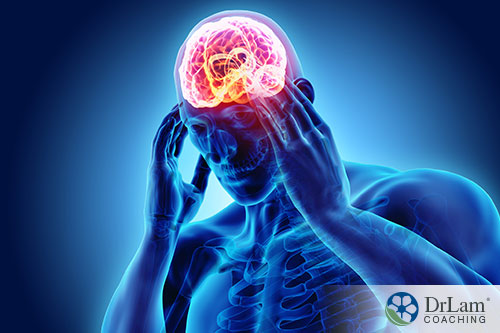 If you have a vitamin D deficiency when you have AFS, it will cause additional stress. It may cause problems with your bones, immune system, or mood. This may trigger or worsen your AFS symptoms. It will also further tax your adrenal glands, worsening the circuit imbalances and your overall condition. Even worse, any side effects of vitamin D deficiency may be exaggerated when you have AFS. Because your body is already in a fragile state, it may suffer more damage than would be normal for this kind of problem. This is why it’s so important that this deficiency is identified and addressed. However, you will need to use caution when you correct this deficiency with high-dose vitamin D to avoid any negative effects.
If you have a vitamin D deficiency when you have AFS, it will cause additional stress. It may cause problems with your bones, immune system, or mood. This may trigger or worsen your AFS symptoms. It will also further tax your adrenal glands, worsening the circuit imbalances and your overall condition. Even worse, any side effects of vitamin D deficiency may be exaggerated when you have AFS. Because your body is already in a fragile state, it may suffer more damage than would be normal for this kind of problem. This is why it’s so important that this deficiency is identified and addressed. However, you will need to use caution when you correct this deficiency with high-dose vitamin D to avoid any negative effects.
Correcting vitamin D deficiencies will also help to rebalance the Hormone Circuit.
The Hormone Circuit in women includes the ovaries, thyroid, and adrenal glands. And in men, the testes replace the ovaries. These three organs are intricately connected, with the health of each affecting that of the others. As the health of the adrenal glands start to decline because of AFS, it will affect the health and balance of the thyroid and ovaries (or testes) simultaneously. This will, in turn, hasten the decline of the adrenal glands and have devastating effects on your health if not corrected. Hormonal imbalances will manifest differently for each person. However, they often cause a combination of symptoms including fatigue, depression, brain fog, and sugar intolerance.
All of these problems will be worsened if you have a vitamin D deficiency. Vitamin D is a hormone that your body produces in response to sunlight. So, as the Hormone Circuit is imbalanced, this vitamin deficiency will occur or worsen. This will probably worsen your hormone imbalance symptoms, causing additional stress and increasing your body’s demand for cortisol in response. This combination may increase your chances of suffering from long-term problems associated with vitamin D deficiency and AFS. And if the problems are allowed to develop in this way, the impact on your AFS symptoms and overall health could be devastating.
Therefore, if you have a vitamin D deficiency, you need to consider strategies to correct it. This may even include taking high-dose vitamin D for a short time.
When you have AFS, it’s important that you only make changes to your lifestyle with the assistance and supervision of a medical professional. This applies when you decide to take high-dose vitamin D supplements or with any other method. Your body will be sensitive and weaker than normal when you have AFS. This means that supplements may cause your body to react in unexpected and possibly dangerous ways. Instead of helping you, the supplements may cause additional stress which will worsen your condition.
So, don’t try to address this problem on your own. See a medical professional and have tests performed to confirm the deficiency. Thereafter, only take supplements under professional care and supervision. It’s also important that you avoid taking high-dose vitamin D over the long-term. If you have a severe deficiency, it might be helpful to take this medication for a short time until the lack is corrected. But, you should rely on more natural sources for your vitamins.
Make sure to get your vitamin D levels checked. You are deficient if you are less than 30 ng/mL. Take vitamin D to raise the levels, but don't go over 100 ng/mL long term. Keep your 25-hydroxy vitamin D levels around 60 ng/mL if your doctor agrees. Also when you take vitamin D, take it after meals for best absorption. Taking Vitamin D3 with Vitamin K2 can be beneficial for overall health, as these vitamins work synergistically. Vitamin D3, crucial for bone health and immune function, enhances calcium absorption in the body. Vitamin K2, on the other hand, aids in directing calcium to the bones and teeth, where it's needed, and away from arteries and other soft tissues. This combination helps in maintaining healthy bone density and cardiovascular health. Additionally, Vitamin K2 complements the role of Vitamin D3 in supporting the immune system and reducing inflammation.
Vitamin D plays a crucial role in enhancing the immune system's ability to fight off infections. This vitamin, which is often dubbed the "sunshine vitamin" due to its production in the skin in response to sunlight, is vital for maintaining a healthy immune response. It does this by modulating the innate and adaptive immune systems, two critical components of our immune defense. Vitamin D receptors are found on immune cells, and when activated, they can help to decrease inflammation and enhance the function of immune cells such as T cells and macrophages. These cells are essential for protecting the body against pathogens. Additionally, adequate levels of vitamin D have been linked to a reduced risk of respiratory infections and may have a beneficial role in the prevention of autoimmune diseases. Therefore, maintaining sufficient vitamin D levels through sun exposure, diet, or supplementation is important for supporting overall immune health.
You shouldn’t ignore any deficiency, especially when you have AFS. Your recovery from this condition is dependant on improvements in your health and reductions in your stress. You must ensure that you get adequate nutrition as well. Taking a high-dose vitamin D supplement isn’t always the best option. If you want to avoid the health problems associated with this strategy, you need to leave the pills behind. Instead, get a little extra sunlight every day and eat foods rich in vitamin D. These are cheaper, safer, and more effective ways to protect your bones and safeguard your health now and in the future.
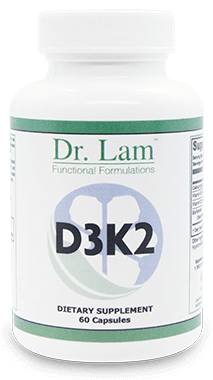
Strengthen Bones with D3 and K2
Vitamin D deficiencies are becoming more common as people avoid the sun. But, that doesn’t mean that you should take a high-dose vitamin D supplement. This approach can have the opposite effects on bone density. So, this is why you should still get this nutrient from the sun.